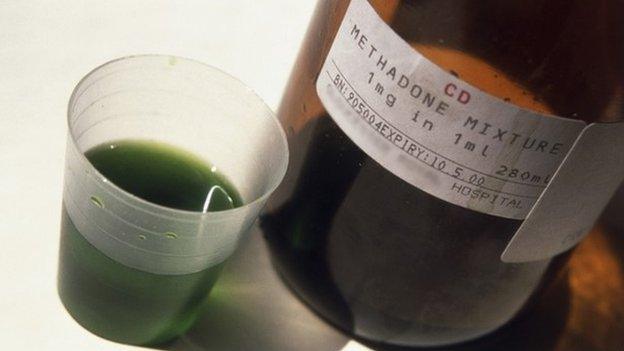Scottish methadone prescription numbers 'not accurate'
- Published
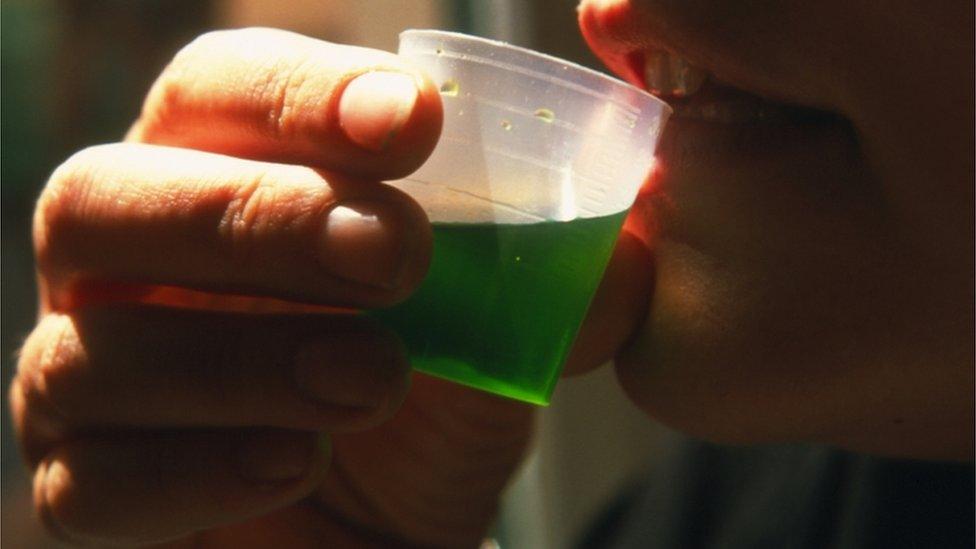
Methadone use was promoted in the 1980s to encourage drug users into the health system
The NHS does not have accurate data for the number of people being prescribed methadone and other opioid substitutes in Scotland, the BBC has learned.
The health service described the problem as a "data quality" issue.
The number of drug-related deaths in Scotland soared to 1,187 last year, the highest rate in the EU.
Methadone, a synthetic opiate prescribed to heroin users as a substitute, had been used by 560 of those who died.
Drugs charities stressed that, despite the stigma surrounding it, methadone was effective when used as part of a planned programme of recovery from addiction.
Critics also complain that many people are "parked" on methadone, using the replacement drug for years.
Methadone, as well as other opiod substitutes such as buprenorphine, is available to drug addicts via an NHS prescription and is designed to wean users off their habits as part of their rehabilitation. It also reduces the risks from injecting and overdosing.
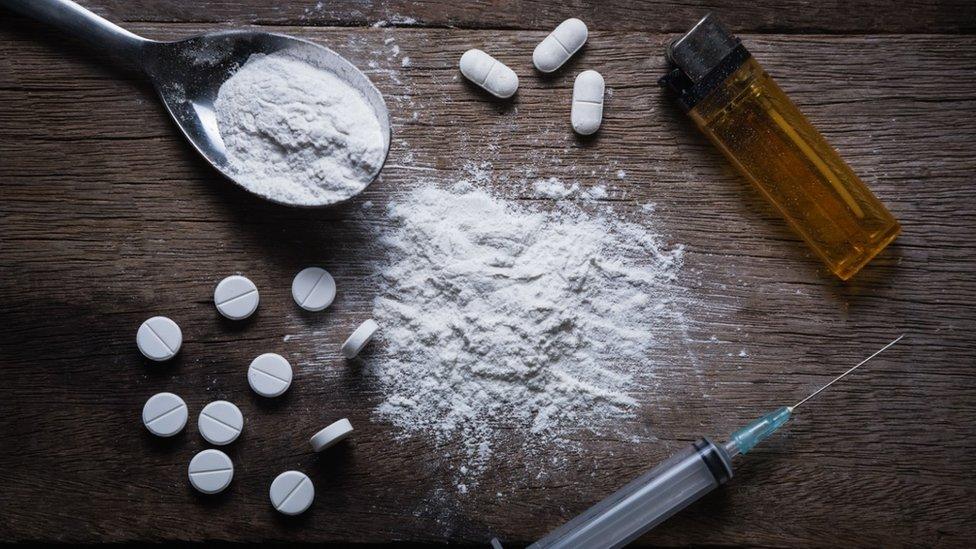
There are estimated to be more than 60,000 problem drug users in Scotland
The most recent figures estimate that a minimum of 25,906 people were prescribed methadone in Scotland in 2017-18.
However, issues with the way data is captured led official statisticians to warn "it is not possible to provide a robust count of the number of individuals prescribed methadone".
Prof Sir Harry Burns, who was Scotland's chief medical officer until 2014, said a failure to accurately record everyone prescribed it could result in missed opportunities for people to access recovery services.
He told BBC Scotland that good data was needed to make sure that everything was done to support people into recovery.
Why is there a problem with the data?
The problem relates to CHI numbers.
Each NHS Scotland patient has a unique number on a register called the Community Health Index.
Every prescription should contain a patient's CHI number so that it can be recorded. The register is available to varying extents of access, depending on need, to healthcare providers across NHS Scotland.
According to the NHS, the problem arises in some situations where prescriptions are handwritten, in settings such as prisons and some hospitals or addiction clinics.
Scanners may not be able to recognise some handwritten prescriptions or the prescribers may not have access to the databases containing the CHI numbers.
The problem was highlighted in a report in 2007 and again in a further independent study in 2013.

Prof Sir Harry Burns said he was surprised the data was so bad
Prof Burns said he was "surprised" to hear the problem still existed.
He said: "A public health doctor in a health board, looking at the amount of people on methadone and planning the development of recovery services might completely underestimate what is needed.
"It makes it difficult to plan services and it makes it difficult to help people."
NHS guidance said CHI numbers should always be used to identify a patient , external.
The BBC asked the NHS what measures were being carried out to solve this known issue and if they had any idea of the extent to which the figures were under-recorded.
They said CHI capture is generally high in areas where it is GPs that are managing the prescribing and lower where this is being done through specialist clinics.
Statisticians said CHI capture for methadone had increased to 80.7% but remained below the agreed threshold of reliability.
NHS boards were aware of the issue and they hope it will be addressed in the next generation of computer systems.
- Published16 July 2019
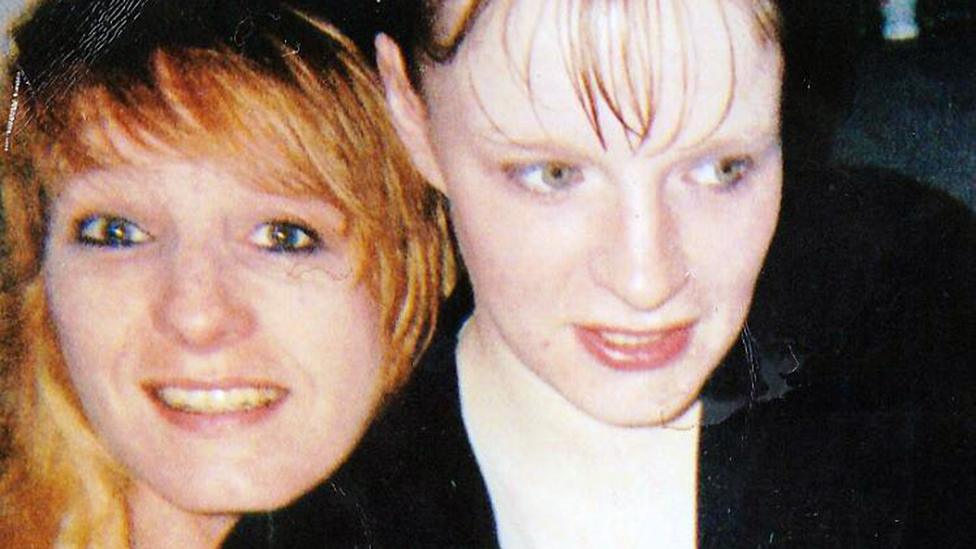
- Published15 December 2020

- Published3 May 2018
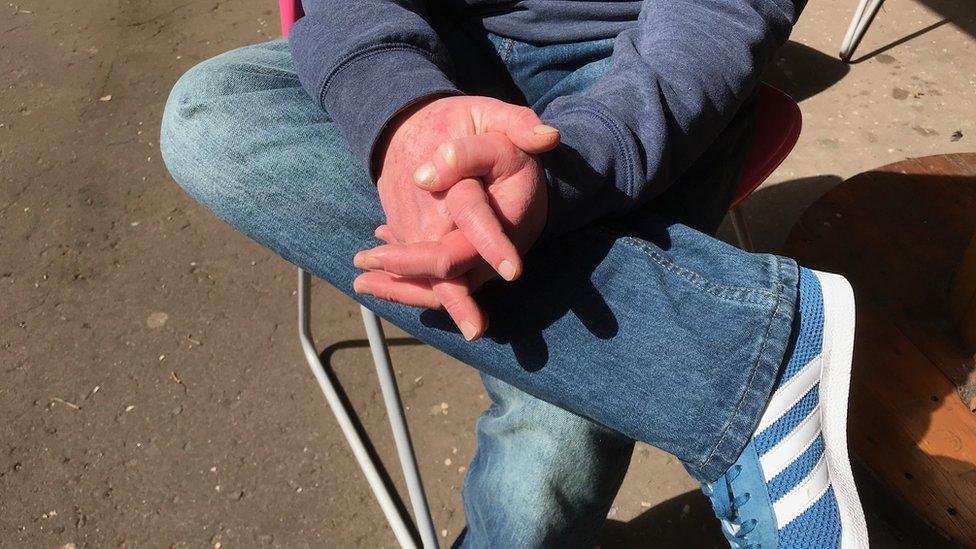
- Published25 March 2015
